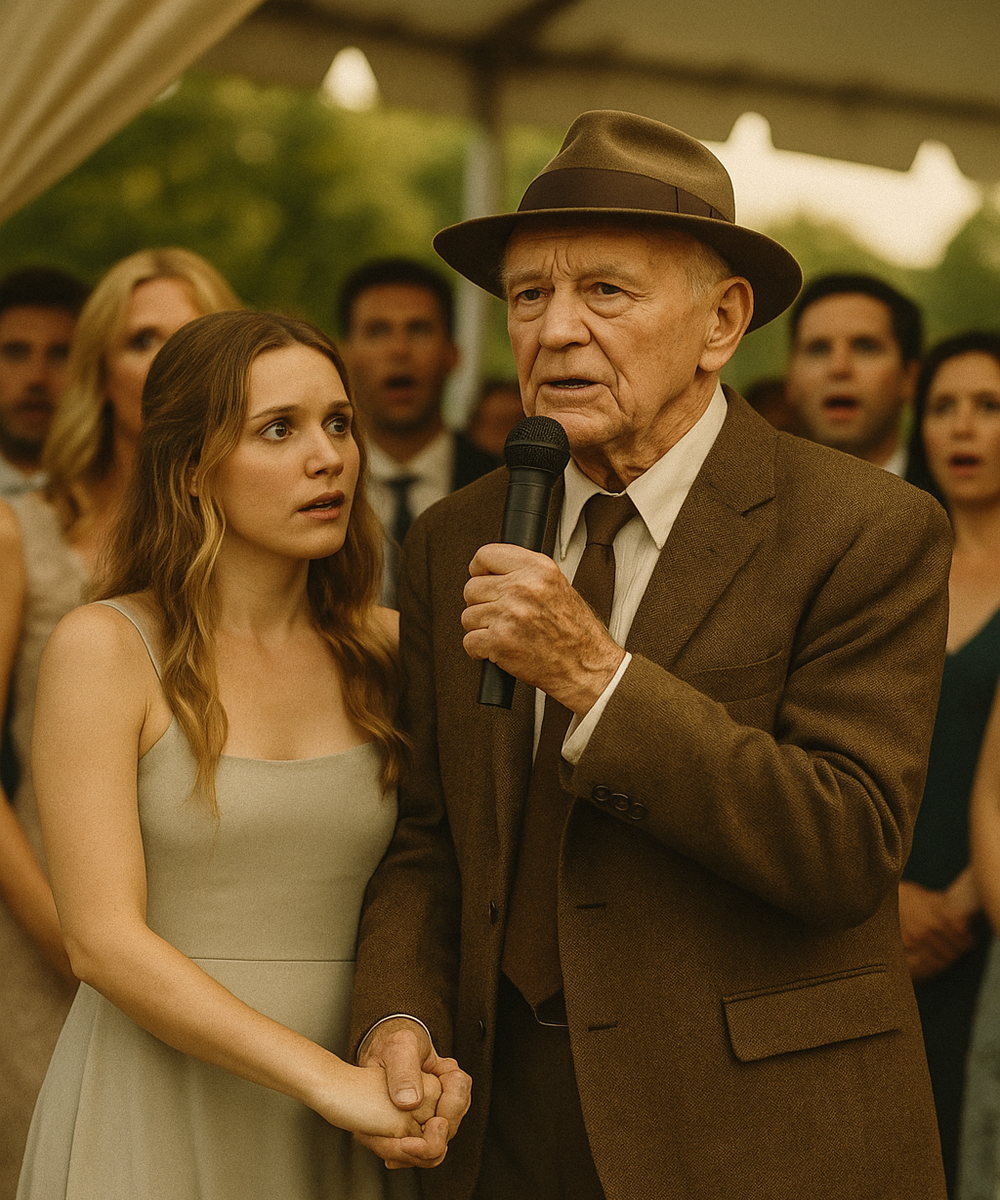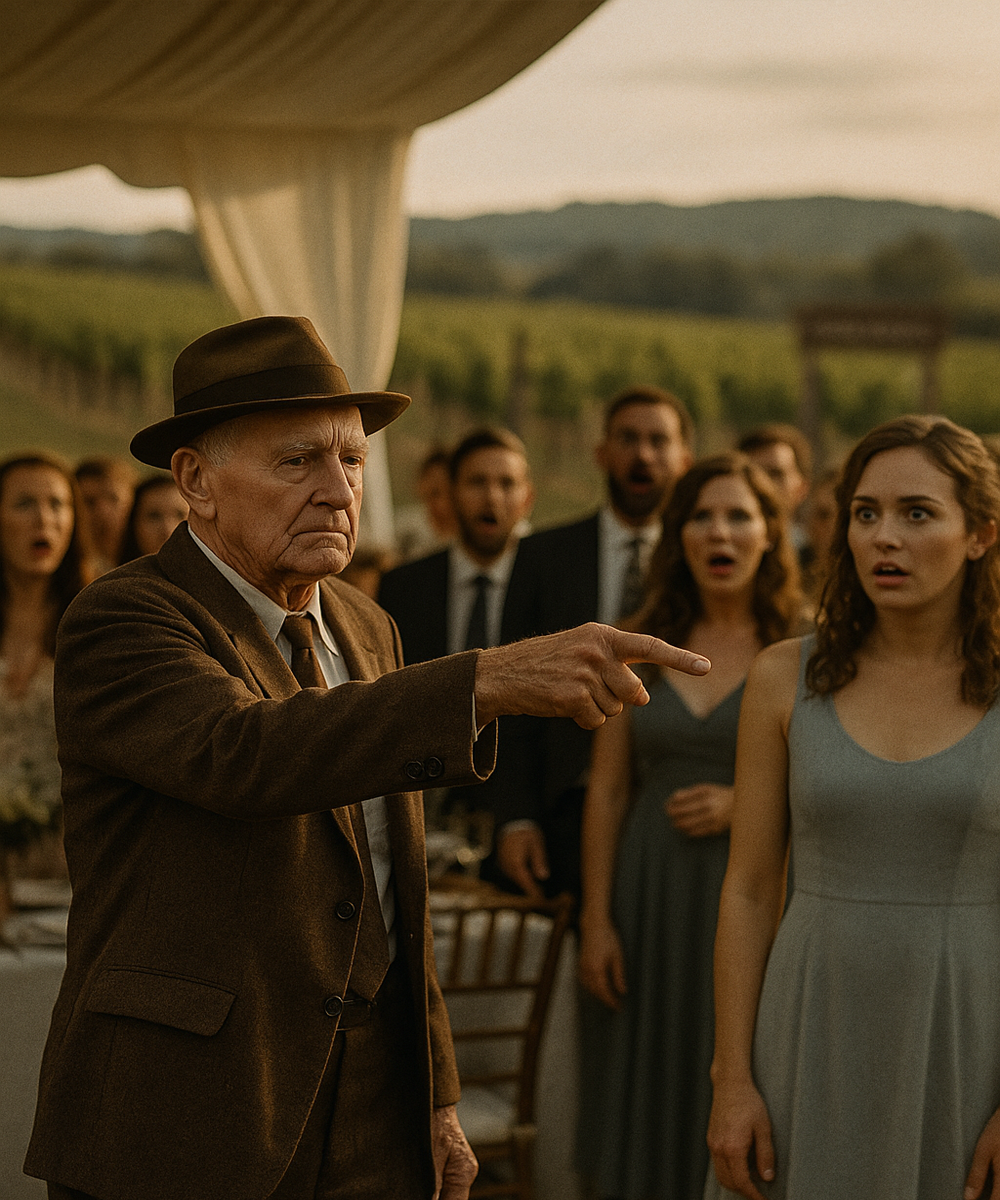The Vineyard’s True Heir
I arrived at Jason’s wedding wearing a secondhand dress and the kind of resolve that only disappointment teaches. Spring in Napa had bloomed beautifully—roses in full flare, champagne flowing like promise—but none of it softened the chill in my chest.
I didn’t belong.
No makeup, wind-tossed hair, a dress someone else had loved before me. The waiter looked past me as though I were scenery. In the crowd of couture gowns and tailored tuxedos, I was a smudge on a polished mirror. My reflection caught in a glass door confirmed it.
Then came the greeting from my mother—a brief sweep of her eyes, a longer pause. “You look… decent.” No embrace. No welcome. Just the back of her dress walking away toward someone richer.
Jason was the golden son, wrapped in laughter and lace, arm slung around a fiancée who didn’t recognize me even when our eyes met. To her, I was background noise.
And yet I came. Because even broken families are still families. And I suppose a part of me hoped that showing up meant something.
It didn’t.
Until Grandpa arrived.
Out stepped Joseph in a dark blue suit, crooked tie and all. He looked smaller, more brittle than I remembered. But his eyes lit up the moment he saw me. “Kais,” he rasped. “You’re the only one worth flying for.”
He smelled like peppermint gum and memories. He held me like I mattered.
A staffer led us past the arch, around the patio, and to a plastic chair wedged between two trash bins beside a buzzing vent. My throat tightened.
“There must be a mistake,” I said. But there wasn’t.
I found my mother, still near enough to hear. “Why is Grandpa sitting next to the trash?”
She didn’t flinch. “He insisted on coming. I warned him. Beggars can’t be choosers.”
“He’s not a beggar,” I said.
She leaned in close, her voice like vinegar. “That old man is an embarrassment. The way he talks. The way he smells.”
She said it with pride.
And in that moment, I stood. Walked to the small platform near the seating area. Tapped a fork against my glass.
“Why is my grandfather next to the trash while strangers sit at the family table?”
The silence cracked like thunder.
My mother slapped me.
The sound rang out. She hissed, “You don’t belong here.” Then she turned to staff and ordered my removal.
I walked.
Jason looked away. My father found the wine list fascinating. But Grandpa—he rose. Met me halfway. Slipped a silk handkerchief into my hand, green and frayed, stitched with a faded K.
I sat alone by the parking circle, the cloth in my palm. Then wheels thundered.
A black Rolls-Royce pulled up. SUVs behind. Men in dark suits stepped out. Then Grandpa. Upright. Composed. Regal.
“Ready to shake things up?” he asked.
I stood. Confused. “What’s going on?”
He smiled. “Let’s see if your brother remembers who actually owns this land.”
The venue wasn’t rented. It was his. Ours.
We walked back. My mother was on stage praising Jason’s ambition. Grandpa didn’t stop. His men opened the doors. The room hushed.
Jason choked on champagne. My father paled. My mother froze.

When the truth is revealed
Grandpa took the mic.
“I wasn’t going to say anything,” he began. “But I flew here and wasn’t even on the list. I was sat next to garbage. So here’s the truth: I built this vineyard. I named it after my late wife. I handed it to my family, hoping it’d mean something.”
He paused. “Today I realized it doesn’t. Not to all of you.”
Then, seven words that split the room:
“I built this empire for her. Not you.”
He pointed to me.
Jason’s fiancée whispered, “Who is she?”
Grandpa continued. “I left the land in her name. Because when I was sick, she showed up. Richard, you remember. You changed the forms while I recovered from pneumonia. Claimed I was unfit.”
He handed me an envelope. The deed. Dated before his illness.
Jason shouted. “This isn’t legal!”
Grandpa slammed his cane. “You forged the affidavit. You used my sickness to steal. Not from me. From her.”
I looked at them. “You said I didn’t belong. That Grandpa was a disgrace. And now you care about timing?”
Grandpa walked to the officiant. “Cancel the wedding. This family needs truth first.”
Gasps. Lily cried. Her father called for the car. The crowd unraveled.
My mother glared. I didn’t flinch.
“You disowned me,” I said. “Called me a failure. But I wasn’t. I was just inconvenient. You were the embarrassment.”
Another silence. Grandpa stepped forward. Pressed a sealed paper into my hand. The deed.
Later, in the house, Grandpa explained. How she’d thrown out my Stanford acceptance. How she forged his medical rights. “You weren’t a disappointment, Kais. You were a threat.”
The next day, Matteo called. Whispered, “They’re destroying the tanks.”
I drove. Found him at the fermentation room. The Syrah—Grandma’s last blend—had been poisoned. Solvent. On purpose. He handed me a USB.
“Jason bribed me. I took it. But I called you. You’re the only one who ever respected this place.”
I played the footage at the emergency board meeting. Jason caught red-handed.
Grandpa entered with his lawyer.
“She holds full power of attorney now,” the lawyer declared. “Effective immediately.”
My father muttered, “You’ll ruin us.”
“No,” I said. “You did that yourselves.”
For the deserving
Three weeks later, we held a quiet gathering. Paper lanterns. No press. No speeches.
Grandpa raised a glass: “To the one who remembered what family is supposed to mean. This vineyard belongs to Kais. Not for her blood, but for her heart.”
My mother and brother tried to protest.
“Watch me,” Grandpa said.
Irrevocable.
I took the mic. “This wasn’t given. It was planted. And it grew.”
That night, I found Grandma’s bench. Dug beside the old vine. Found a rusted tin box. A letter:
“They never saw your strength, child. But I did. This land belongs to the one who knows how to love it back.”
I didn’t cry. I just sat beneath the vines, dusk falling like grace.
And for the first time in years, I was home.
